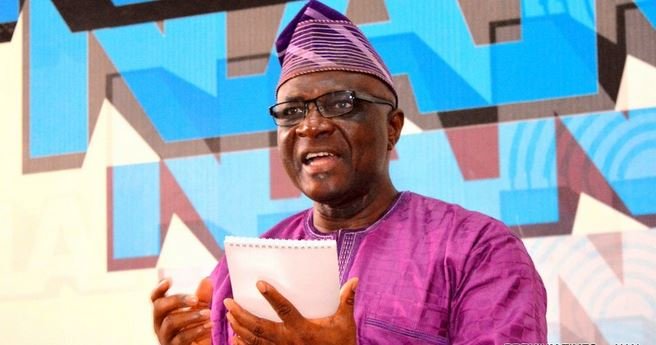President Bola Tinubu has described data as “the new oil”, highlighting its importance in governance and Nigeria’s global stature.
He issued a mandate to all ministries, departments, and organisations to collect, secure, and responsibly release data in order to increase public value and promote international benchmarking.
This strategic emphasis on data comes as Galaxy Backbone launches its 1Government Cloud Academy, an effort aimed at providing civil officials with the necessary digital skills for Nigeria’s transformation to a paperless public sector.
According to a statement issued by Galaxy Backbone on Wednesday, the school is a strategic step to accelerate Nigeria’s transition to a paperless civil service and improve communication between ministries, departments, and agencies.
The declaration was a highlight of the 2025 International Public Service Conference in Abuja, which was attended by Tinubu, members of the Federal Executive Council, diplomats, business executives, and public workers.
In his opening remarks, Tinubu emphasised the strategic importance of data, referring to it as “the new oil”.
He explained that, unlike traditional oil, data’s worth increases with refinement and careful use.
The President directed all MDAs to rigorously capture and secure data under the Nigerian Data Protection Act (2023) and to disclose it in ways that create public value while adhering strictly to international data privacy standards.
“We must let our data speak for us. We must publish verified data assets locally and share them globally. This will enable international benchmarking and strengthen Nigeria’s standing on the world stage,” he stated.
He underlined the importance of strict data sovereignty and privacy protection within local and affiliated data centres.
Galaxy Backbone’s new 1Government Cloud Academy seeks to educate selected government servants and public sector partners on the technological tools required for effective digital transformation.
This is a strategic endeavour to advance Nigeria’s digital public service and improve communication amongst MDAs.
Mr Wumi Oghoetuoma, Programme Director of the 1Government Cloud initiative, spoke on a panel during the event and emphasised the critical role of trust and understanding in the effective adoption of digital technologies.
“Many digital solutions have failed not because they were ineffective, but because users didn’t trust or fully understand them,” Oghoetuoma noted.
He praised the Head of the Federation’s Civil Service for her significant reform efforts in public sector digitalisation, emphasising that the academy’s training includes both technical competencies and critical soft skills for transformation.
The 1Government Cloud Academy will be a primary location for educating and certifying government employees, particularly ECM Project Managers.
These public workers are chosen as “transformation champions” in their departments, serving as in-house digital guides to help colleagues overcome initial obstacles and gain confidence in new tools.
“This approach builds trust, improves usability, and encourages widespread adoption across MDAs,” Oghoetuoma said.
He added, “Many tools are abandoned not because they don’t work but due to lack of communication and internal support.”
Oghoetuoma pointed out that even fundamental issues, such as inadequate WiFi connectivity, frequently go unsolved because ministry officials fail to engage with their IT departments, who, in turn, do not escalate the concerns to Galaxy Backbone.
“This silent communication breakdown creates a false perception that the system is broken when, in reality, it’s an unreported or unresolved issue,” he said.
To address this issue, the school is now providing specialised certification courses for IT departments to improve responsiveness and cross-functional collaboration.
He emphasised that the difficulty is not a lack of digital literacy, as most government workers are familiar with cellphones and social media. Instead, it is about “mindset, motivation, and ongoing support”.
Oghoetuoma emphasised that “digital transformation depends on people, processes, and technology.”
He concluded, “With strong personnel and well-documented processes already in place, the missing link is often technology adoption, and the glue that holds it all together is communication. Sustainable digitalisation in the public sector requires making people feel like active participants, not passive users.”
Mrs Didi Esther Walson-Jack, Head of the Civil Service of the Federation, cited Nigeria’s digital reforms as a model for other countries.
She mentioned the automation of processes via the Enterprise Content Management system, the implementation of a Performance Management System, and the adoption of ServiceWise GPT, which connects individual duties with national priorities.
The British High Commissioner to Nigeria, Richard Montgomery, praised Nigeria’s reform drive under Tinubu, saying, “These are bold and necessary steps for long-term development.”
He emphasised that the success of these reforms is dependent on effective service delivery and civil service integrity.









